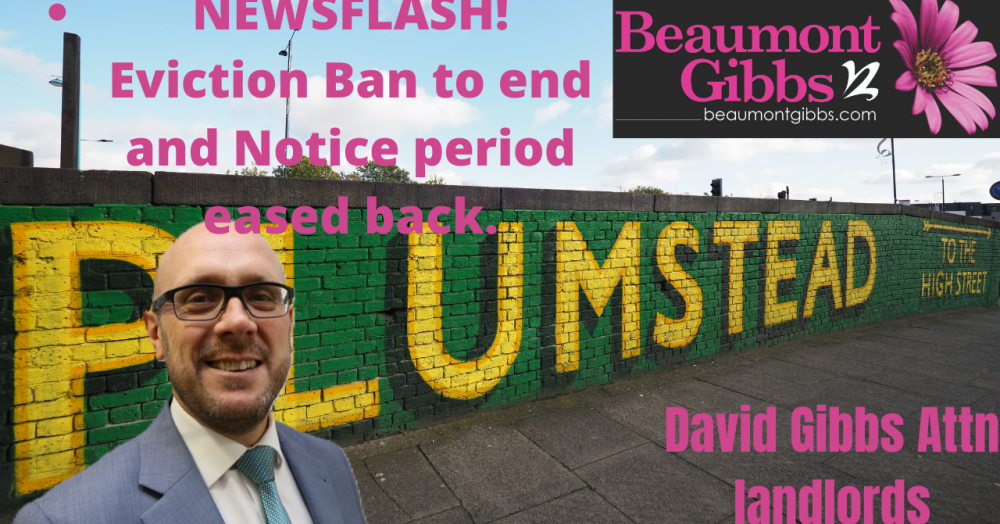The government has announced that as notice periods - previously extended to six months as an emergency measure during the pandemic - will be set at four months from June 1.
The government has announced that as notice periods - previously extended to six months as an emergency measure during the pandemic - will be set at four months from June 1.
An announcement this afternoon says this will offer tenants continued protection throughout Step 3 and into Step 4 of the government’s roadmap out of the pandemic; Step 4 will begin from June 21 at the earliest.
The government also says that subject to the public health advice and progress with the Roadmap, notice periods will return to pre-pandemic levels from October 1.
The current ban on bailiff-enforced evictions, introduced as an emergency measure during lockdown, will end on May 31.
Bailiffs have been asked not to carry out an eviction if anyone living in the property has Covid-19 symptoms or is self-isolating.
The government says these measures will ensure renters continue to be protected with longer notice periods for the coming months, while allowing landlords to access justice.
The statement from the Ministry of Housing, Communities and Local Government says extensive financial support remains in place to help people meet their outgoings, including the furlough scheme and the Universal Credit uplift, which have both been extended until the end of September.
Housing Minister Chris Pincher says: “From the beginning of the pandemic, we have taken unprecedented action to protect renters and help keep them in their homes.
“As Covid restrictions are eased in line with the Roadmap out of lockdown, we will ensure tenants continue to be supported with longer notice periods, while also balancing the need for landlords to access justice.
“Crucial financial support also remains in place including the furlough scheme and uplift to Universal Credit.
“Courts will continue to prioritise the most serious cases, such as those involving fraud or anti-social behaviour, with many of the evictions waiting to be enforced when the ban lifts predating the pandemic.
“This week the government announced that a White Paper will be published in the autumn that will set out proposals to create a fairer private rented sector that works for both landlords and tenants.
“This includes proposals for the abolition of Section 21 ‘no fault’ evictions to give tenants greater security and a new ‘lifetime deposit’ to ease the burden when moving house.”
If you would like any further advice on the latest legislation, please call us on 020 8319 7600 option 2
Sincerely
The team at Beaumont Gibbs

